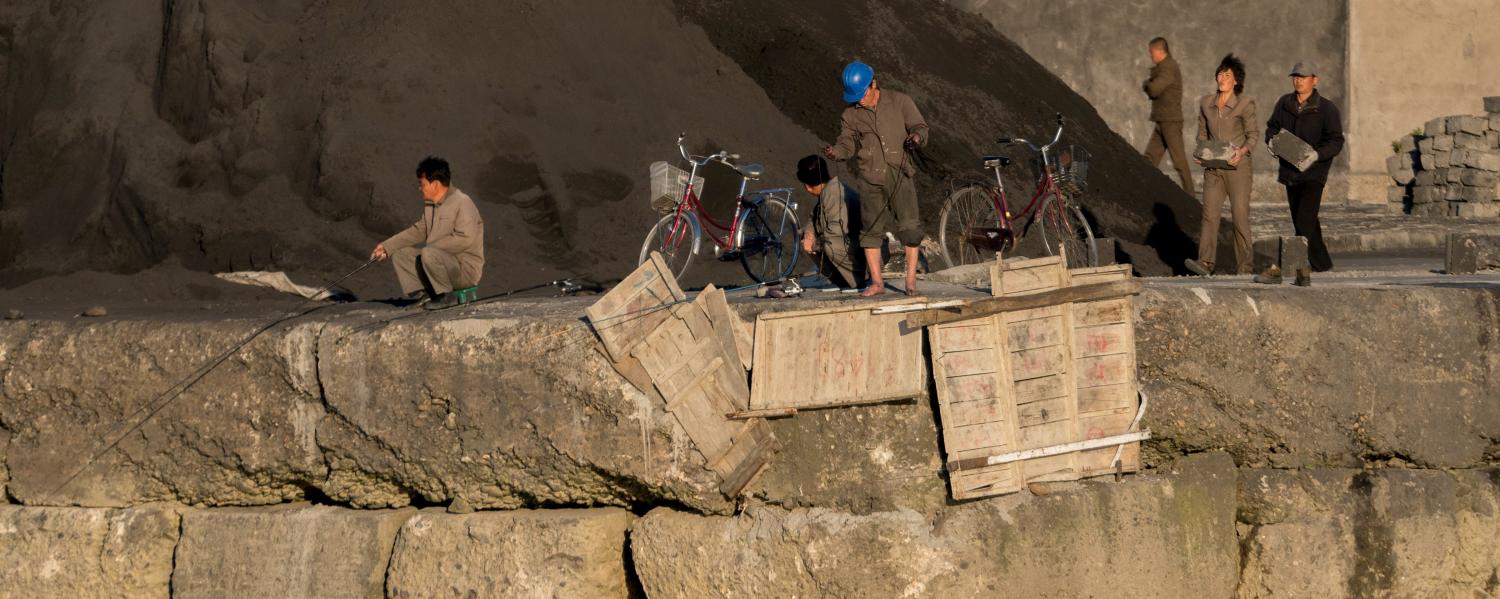How should we understand the motivation behind China's decision to cut-off imports of coal from North Korea?
A conventional place to start might be from Chinese officials. Yet there were few relevant details that emerged from the Munich Security Conference, where Foreign Minister Wang Yi addressed the North Korea issue on 18 February thanks only to a question concerning North Korean leadership and deaths within the Kim family. Along with his colleague Fu Ying, the Foreign Minister seemed determined not to rock the boat at Munich, depicting China as a neutral UN stakeholder only interested in promoting negotiations amid the storms between the US and North Korea.
Under a more conventional US administration, the secretary of state or their deputies would have practically shouted in triumph that it was precisely US manoeuvring that prompted China to pressure North Korea in this fashion. Rex Tillerson, however, has maintained his Delphic style, and in spite of North Korean exports to China being one of the few specific data points he clung to in his sole foray into Congressional testimony, the new Secretary did not take credit for having strong-armed Wang Yi during their hour-long meeting prior to the former Exxon CEO departing for the bureaucratic knife-fights doubtless awaiting him back in Washington.
Still other hypotheses might look to Pyongyang's statements of pique at Beijing. A highly unusual 23 February editorial by a pseudonymous author known as 'Righteous Pen' published by the Korean Central News Agency would appear to confirm a hypothesis that relations between the two socialist states were breaking down, and that China took the coal steps as a punitive measure.
In search of an ideal an answer to the question of 'why' or 'why now' on the coal issue, perhaps we ought to clear out of Beijing, Munich, and Washington altogether, and instead imagine an analyst standing at the end of a bridge in Dandong, the traditional go-to city for understanding the texture and meaning of Sino-North Korean trade (Dandong is also a good representative of the problems facing Liaoning provincial officials in balancing anti-corruption activity with foreign trade.)
In an attempt to find answer, our analyst might encounter anecdotes about lower-than-normal lorry traffic, probe at local frustration with low profits and recalcitrant North Korean partners, and note down desolate tales of unused bilateral trading infrastructure. They might also meet with Chinese trade officials in the model new trade zone across from North Korea. Should this analyst be wise enough to salt in a reminder of the Jang Song-taek purge and execution of December 2013 into their writing, half the task would be done.
Looking for warmer weather to write up the research, our analyst would then use a new airport in the border region (both Dandong and even little Tonghua possess new facilities) to connect to Macau. There, he or she would take a few more days to meet with quotable Chinese scholars of international relations, look for North Koreans on business, and ransack newspapers and blogs for evidence of Chinese anger about North Korea's ostensible assassination of Macau's adopted son and would-be monarch, the exiled North Korean Kim Jong-nam.
Sadly, even in the midst of such a trip, deadlines loom, and our analyst has to take a stab at a conclusion, something along the lines of:
Having been violently robbed of another key ally in the long-term quest for a reformed North Korea, the Chinese Communist Party has abruptly decided to 'punish Kim Jong-un' by depriving his country of the sizeable coal sales revenue stream.
Leaving our analyst to enjoy Macao, we can at least recognise that presenting the problem as a binary, as above, certainly makes for fun reading. It promises that Chinese Communist Party has a long-term North Korea strategy reliant on maintaining a soft but alternate centre of power in exile, that the wheels are at last coming off of the Sino-North Korean alliance, and that China is surprised and upset at the assassination of Kim Jong-nam.
Far less exciting but potentially as true are the following points:
- The apparent dead zone of Chinese-North Korean trade seen in Dandong might rather be attributed to 16 February, Kim Jong-Il's birthday and known as the 'Day of the Shining Star' in North Korea, which is always a slow time for bilateral trade anyway. As was illustrated in 2014, normal trade tends to zoom toward the next major Kimist holiday, the 'Day of the Sun' on 15 April.
- China may be giving with one hand, while taking away with the other. The recent major investment in the Tumen power grid (which abuts the North Korean border) is one potential case in point. The relevant firms had talks with North Korea just prior to Kim Jong-nam's death, and electricity is one of the tangible assets China deploys to keep North Korea stable.
- If the Chinese Communist Party is 'punishing' Kim Jong-un, it might wish to inform the Chinese masses that it's doing so. There was very little early state media coverage of the 23 February North Korean editorial, and the framing of the Kim Jong-nam killing as evidence of Sino-North Korean friction has been discouraged.
- The People's Liberation Army press conference by Ren Guoqiang on 23 February raised and then quickly denied as 'pure fabrications' the 'Hong Kong media reports' that People's Liberation Army (PLA) units had been moved close to the border. Meanwhile, in verifiable news, a PLA General charged with foreign liaison visited the North Korean embassy in Beijing on 7 February, meaning that PLA ties to North Korea can hardly be said to be in atrophying or in free-fall.
- PRC state investment in and construction of seafood processing factories around Hunchun is pressing forward in 2017; these factories is depend on harmonious trade relations with North Korea, which supplies the factories with unprocessed aquatic materials.
- North Korean workers will continue their role in the border areas of Jilin and Liaoning provinces; until these tens of thousands of legally-sanctioned (and carefully watched) workers are sent back to North Korea, we cannot seriously discuss a full-scale breakdown of economic relations between the two states. Their very presence reminds us that although we are entering a relatively new ethos of 'empty cannon shots' of propaganda – to use Mao's term to Nixon – there are still multiple areas of shared concern and economic exchange

